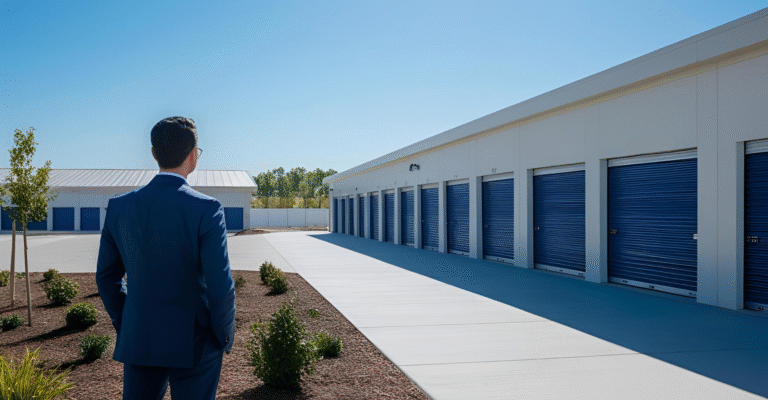Smart Money Is Looking at Self Storage, Should You?
When seasoned investors start shifting their attention to a particular sector, it tends to raise eyebrows. In recent years, self storage has quietly become one of those sectors. Once considered a sleepy corner of commercial real estate, it now draws interest from institutional players, family offices, and accredited individuals alike. The appeal lies in its consistency, scalability, and surprising resilience across economic cycles.
Self storage may not have the glamour of a downtown high-rise or the familiarity of a single-family rental, but it offers something many other asset classes struggle to deliver. It generates stable cash flow, has relatively low operational costs, and remains in demand regardless of economic sentiment. These features are especially attractive to investors seeking diversification and downside protection in uncertain markets. That’s why so many are taking a closer look.
The growth of the sector tells its own story. Demand for storage has increased as Americans downsize, relocate, and reconfigure their lifestyles. Businesses also contribute to this demand, using storage units for inventory, records, and equipment. This steady usage, paired with relatively low tenant turnover costs and the ability to automate operations, helps explain the sector’s strong fundamentals. Even during downturns, occupancy rates have remained remarkably steady.
For investors who care about cash flow, self storage can be particularly appealing. While appreciation plays a role, most returns in the sector are driven by income. Units can be re-leased quickly and often without costly build-outs or concessions. As rents adjust more frequently than in other property types, operators can respond to market conditions faster. These dynamics make it easier to keep cash flowing, even when the broader market hits a speed bump.
Self storage also has a long runway for improvement. Many facilities across the country are still owned and operated by individuals or families with minimal technology integration. For experienced operators and capital allocators, this presents a compelling opportunity. Upgrades in software, pricing strategies, security, and branding can dramatically improve performance. These value-add opportunities are one reason more experienced real estate professionals are getting involved.
Another key factor is accessibility. Compared to large multifamily or office buildings, storage investments often require less upfront capital. This has opened the door to fractional ownership platforms and private syndications, where accredited investors can gain exposure to the asset class without owning or operating a facility directly. As the ecosystem of sponsors, platforms, and tools grows, investing in storage has become more straightforward.
Of course, no investment is without risk. Supply-demand imbalances can occur, particularly in overbuilt markets. Operational issues, poor management, or inaccurate underwriting can also hurt performance. While many self storage deals are marketed with attractive returns, not all sponsors are equal. Due diligence remains critical, and investors should be cautious not to assume that all deals offer the same level of quality or protection.
It is also important to understand that self storage is not a passive investment by default. Even though platforms have emerged that allow for easier entry, investors should still evaluate the underlying business model and the experience of the sponsor team. A poorly run facility, even in a strong market, can underperform. Understanding the operator’s track record and alignment with investors is essential.
Self storage’s rise in popularity does not mean it is right for everyone. Your goals, time horizon, risk tolerance, and need for liquidity should all be considered before making an investment decision. Speaking with an attorney, financial advisor, or tax professional can help clarify whether an opportunity fits into your broader strategy. Real estate, including self storage, is a long-term asset class and requires thoughtful participation.
Smart money may be moving into self storage, but investing is never one-size-fits-all. At StorageTrader, we aim to make it easier for accredited investors to explore opportunities in the space. We don’t recommend or vet individual deals, and we are not a financial advisor. As with any investment, do your homework, ask hard questions, and consult your professional team before making any commitments.








